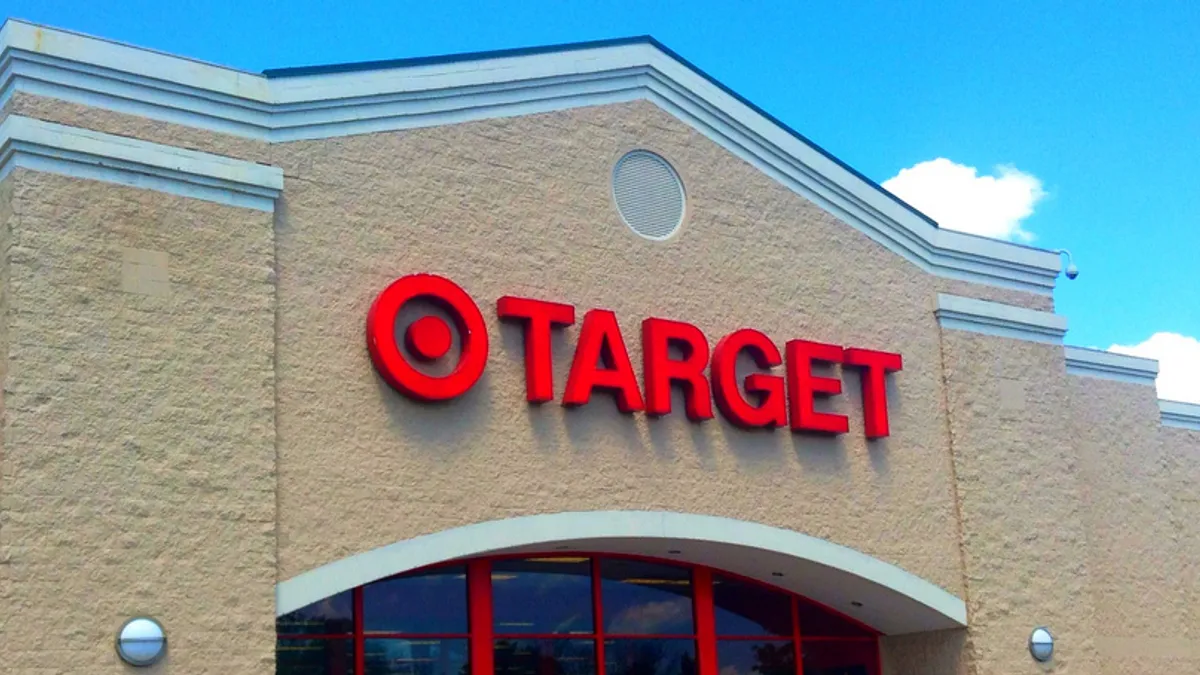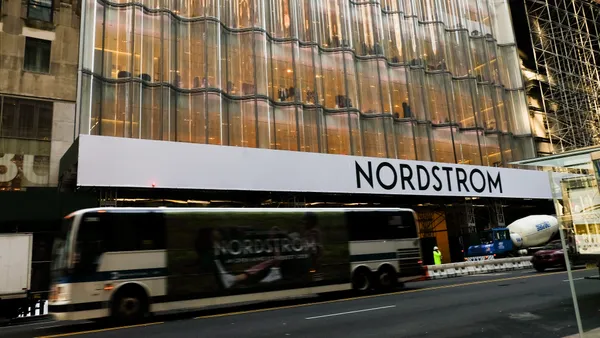Dive Brief:
- In new diversity goals released this week, Target said it planned to increase representation of Black employees in its workforce by 20% over the next three years by "sharpening its focus on advancement, retention and hiring," according to a press release.
- According to the retailer's latest workforce diversity report, also released this week, 15% of the total workforce in 2019 was made up of Black or African American workers. People of color made up about 50% of Target's workforce last year and and 58% were women. Target said it has a workforce of nearly 350,000 team members.
- In its leadership team, 42% were women and 24% people of color, with the number of company officers of color doubling over the past five years, according to the company. Eight percent of the people on its leadership team were Black or African American last year and among its board members, 15% were Black and 31% were Latinx, according to Target's workforce diversity report. A third of the board members were female.
Dive Insight:
Conversations and protests over racial injustice in the U.S. came to a flash point in Target's hometown with the killing of George Floyd at the hands of Minneapolis police officers.
The company was quick to acknowledge how close to home the unrest that followed hit. Target CEO Brian Cornell wrote shortly after Floyd's death: "We are a community in pain. That pain is not unique to the Twin Cities — it extends across America."
More recently, on the company's second quarter conference call in August, Cornell again brought up the subject of race as it relates to the company he runs. During the call he said that "our team is passionately demanding equity and justice for our [B]lack colleagues and guests," according to a Seeking Alpha transcript.
He noted then that the company has dedicated $10 million to local rebuilding efforts and national social justice initiatives. Cornell also said in August that the company had formed a committee, called "Reach," dedicated to "advancing racial equity for our [B]lack team members and guests across all areas of Target's business."
The committee is centered around four key areas: Target's team, customers, communities, and civic engagement and public policy, according to Cornell.
Target's latest efforts to boost representation among Black staffers touches several aspects of the business. The company said in its press release this week that it aimed to lean on its stores, headquarters and supply chain to "provide broader leadership pathways for Black team members to develop and advance."
Target also plans to develop programs to retain and help advance Black employees in areas of historically low representation, including technology, data science, merchandising and marketing. In addition, Target said it aims to develop a network of mentors and sponsors, while also conducting anti-racist training for leaders and other staffers.












